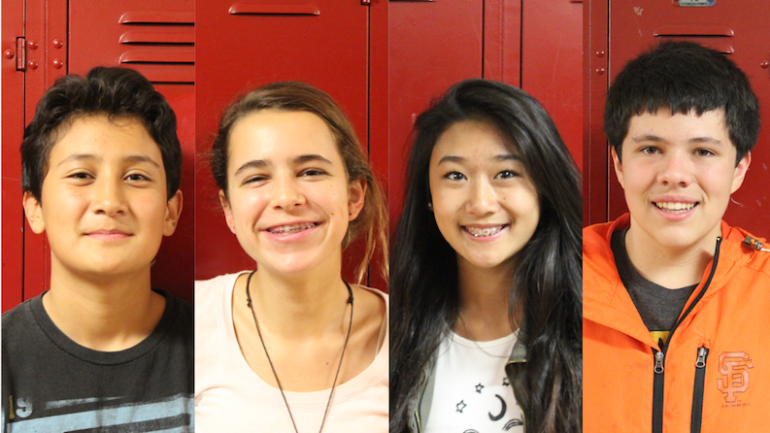
On Saturday, August 9th, Michael Brown, an unarmed black teenager, was gunned down by Darren Wilson, a white police officer, in Ferguson, MO. Longstanding tensions boiled over, and the small town swelled with protests, both peaceful and riotous. The media descended and captured every crooked, ambiguous angle of a town trying to cope with broken hearts and shattered promises. And for the second time in as many years, students and teachers at Gateway High School discussed the killing of a young, unarmed, African American teenager and the consequences of such actions on a larger scale.
In class, Gateway teachers shared myriad reports and videos from the media and asked students to vet each one, look for bias, and evaluate why they should or should not be considered credible sources. Students agreed that in spite of the inherent tension in the situation, news outlets capitalized on the drama, only adding fuel to the fire. Said Grace, "When I watch the news, there's not a lot of thought, but political and emotional responses."
After processing the information for two weeks, students were asked what they thought of empathy and how it should/could have played out in Ferguson. Many felt it difficult to consider compassion for the police officer. "Sorry is just a word," Nathan sighed. "It's an easy way out." "Yeah," added Trinity, "It would be better if he took responsibility, learned about the family, and offered to help them out." But Ruben took a firmer stance, "He should go to jail...he was too quick to judge."
All of this effort goes a long way to diffusing a potentially fraught situation. Students were, once again, challenged to respond rather than react, something the media does not model very well. Notably, many students stirred at the outpouring of support for Michael Brown's family and his subsequent funeral. "It shows how much people care," said Jonah. "They're trying to make peace AND change. They don't want to start a war, they just want the racism to stop." Added Vincent, "It shows that people stand up for what they believe in." Jordan was adamant, "Life is so precious. We need to take action now!"
Yet even after discussion, questions lingered: "Why did he need to be shot?" "Why was he shot six times?" "Why do there have to be sides?" "Why can't people put their racial bias aside?"
And finally, Cristal wondered, "I wonder who the next victim will be."
Would it be too much to hope that we don't have another discussion next year?
Editor's note: Students in Humanities 9 will soon spend an additional week on Ferguson to evaluate sources for bias and work on historical thinking. We will provide a follow up at that time.